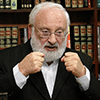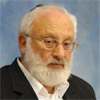One’s Soul Shall Teach One
 Two questions I received on directions other than Kabbalah
Two questions I received on directions other than Kabbalah
Question: Dear Rav Laitman, I’m simply in shock. I listen to your lectures and I’d really like to know: What right do you have to deny a person’s personal understanding of G-d, on the one hand, and on the other hand, what right do you have to assert that no other path is correct!? It’s clearly written that “A person studies where his heart leads him” – you are not the only one who teaches Kabbalah, so what are you trying to do – is this your way of ruling over the world!? My mother was righteous, and she always devoted herself to society, but she didn’t spend a day of her life studying Kabbalah. So what’s all this wisdom worth if, in the end, there are pure people without it? And if it’s not intended to make this world better, then is there really anything good about it!?
My Answer: I have the right to assert my opinion, and you have the right to do disagree with it. I have no complaints against you. Kabbalah has its assertions, and you have yours. As long as you haven’t discovered what Kabbalah is talking about, then what it asserts is nonexistent for you, and thus, you are absolutely correct to reject its assertions. However, when the necessity to reveal what Kabbalah is talking about comes to you, and when you’ll discover what it talks about, then you’ll change your opinion. There’s a time for everything.
Question: I can’t attain anything without a teacher, but where can I get him if I live in Baltimore? And why can’t I get answers, hints, and explanations from Blavatsky, Levi, Yung, Plato and Pythagoras?
My Answer: Go ahead and get answers from them, if you’re able to be satisfied by their teachings. A person should study wherever his heart feels drawn, and he should study that which fulfills his heart.
Related Material:
Chapter 6 from the Book The Kabbalah Experience: Soul
Lesson: Freedom of Will


 Two questions I received on “love thy neighbor”
Two questions I received on “love thy neighbor”




